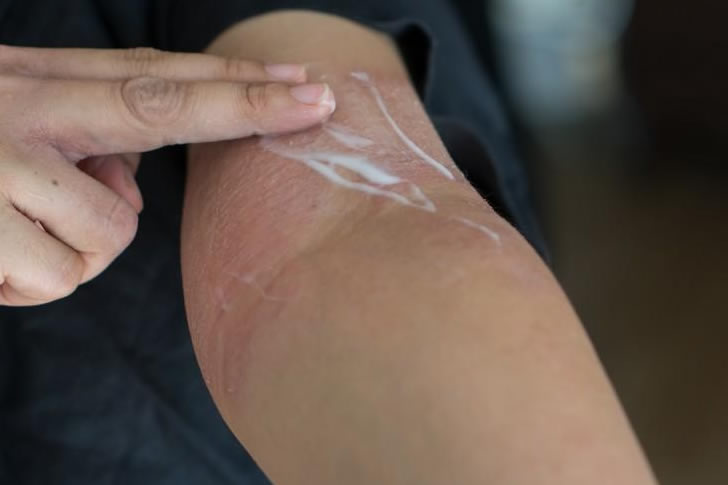Facing Plaque Psoriasis: What Do You Need to Know?
Plaque psoriasis can be a persistent and perplexing condition. We’ve carried out detailed research to bring you essential insights into its nature and management in United States.

Understanding Plaque Psoriasis In America
Plaque psoriasis is a chronic autoimmune condition characterized by the rapid build-up of skin cells. It is a prevalent disease in the United States, impacting an estimated 7.5 million Americans, according to the American Academy of Dermatology. This buildup leads to scaling on the skin’s surface, which is often silver-white. The patches, commonly known as plaques, are frequently found on the scalp, elbows, knees, and back. These areas can be itchy and sometimes painful. Plaque psoriasis is recognized for its unpredictability in flaring and subsiding, varying greatly between individuals.
Manifestations and Causes
The primary features of plaque psoriasis include raised areas of inflamed skin covered with silvery-white scale. These plaques can crack and bleed in severe cases. The condition stems from an accelerated skin production process, which is believed to be driven by an immune system malfunction. Genetics play a crucial role, and environmental factors such as stress, skin injury, and certain medications can trigger or worsen episodes.
Effective Management Strategies for Americans with Plaque Psoriasis
Managing plaque psoriasis effectively requires a combination of lifestyle adjustments, medical treatments, and potentially home remedies. Here are detailed strategies particularly beneficial for americans:
- Moisturizing Regularly: Keeping skin moist is crucial. Use thick ointments like petroleum jelly or heavy skin creams that lock water in. Apply immediately after a bath or shower to maximize absorption.
- Bathing Practices: Daily baths in lukewarm water using mild soap can help soothe irritated patches and remove scales. Adding bath oil, colloidal oatmeal, Epsom salts, or Dead Sea salts might also help alleviate discomfort.
- Dietary Adjustments: Some individuals find that certain foods exacerbate their condition. While evidence is anecdotal, it may be helpful to track food intake and manifestations to determine if any foods act as triggers.
- Sunlight Exposure: Moderate exposure to sunlight can significantly improve manifestations, but it’s essential to avoid sunburn. About 10-15 minutes of daily sunlight is advisable, depending on skin type and geographic location.
- Stress Reduction: Since stress can trigger flare-ups, practices such as yoga, meditation, and regular exercise can be beneficial.
- Avoidance of Alcohol and Smoking: Both smoking and excessive alcohol consumption can exacerbate manifestations and potentially render treatments less effective.
- Topical Treatments: Over-the-counter creams and ointments containing corticosteroids or coal tar can be applied to affected areas to reduce inflammation and scaling.
- Phototherapy: This involves exposing the skin to ultraviolet light under medical supervision and can be effective for severe cases.
Advanced Treatment Options for Plaque Psoriasis
For those seeking more intensive treatment, several advanced options have proven effective for managing plaque psoriasis in America. Biologic medications are a class of drugs that target specific parts of the immune system and have revolutionized the treatment for moderate to severe cases. These medications, including etanercept, adalimumab, and ustekinumab, are typically administered through injections or infusions and can significantly reduce the extent and severity of manifestations. Another innovative treatment is systemic treatments that work throughout the body, such as methotrexate or cyclosporine, which are especially useful for those who have not responded well to traditional therapies. Additionally, the latest topical treatments contain ingredients like calcitriol and calcipotriene, which are vitamin D analogs that help control the overproduction of skin cells. While these treatments can be highly effective, they require careful monitoring by healthcare professionals to manage potential side effects and ensure the great outcomes for the patient’s health and quality of life.
Concluding Thoughts
Plaque psoriasis can be a challenging condition, but understanding your options and knowing how to access the right treatments can make all the difference. With advancements in medical treatments and a better understanding of the condition, americans suffering from plaque psoriasis have many tools at their disposal to manage their manifestations and improve their quality of life. It’s important to work closely with healthcare providers to tailor a treatment plan that suits individual needs, considering both the severity of the condition and the lifestyle of the patient. Remember, each step taken towards understanding and managing plaque psoriasis is a step towards reclaiming a comfortable and active life. Armed with the right knowledge and support, individuals can navigate their treatment path with confidence and optimism.







Recent Comments